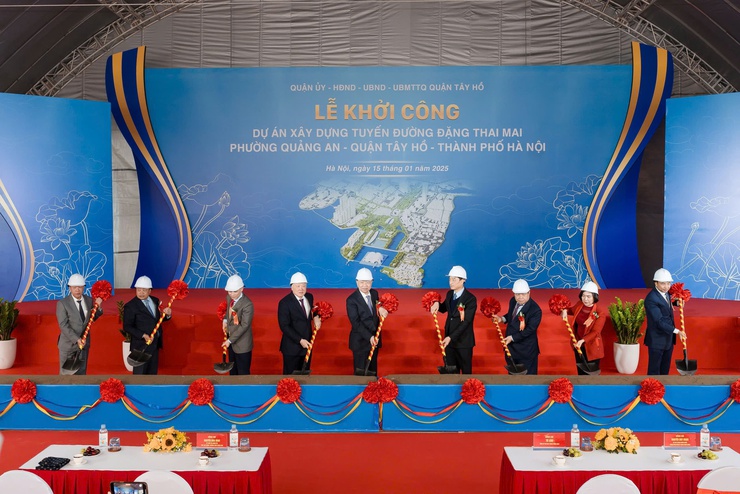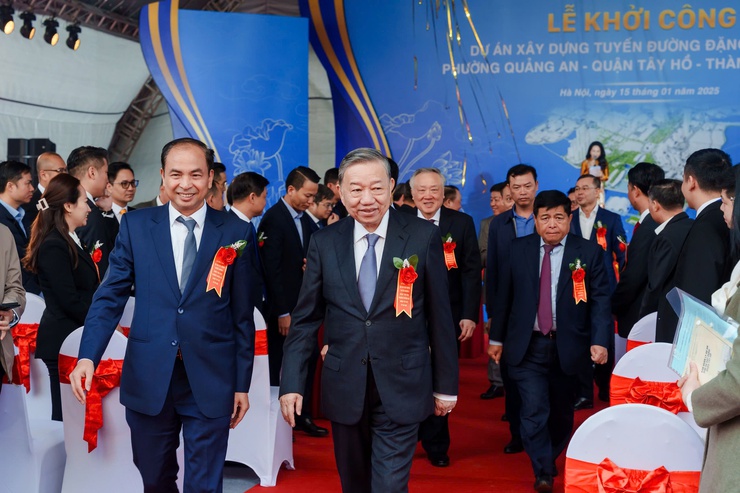The project was approved by the Tay Ho District People's Committee under Decision No. 1434/QD-UBND dated August 26, 2024, with a total investment of $22.3 million, including $15.8 million for land clearance and $3.35 million for construction.

The delegates at the event.
The road will span 1,260 meters, beginning at the Tay Ho Villa area and ending at the intersection with Xuan Dieu Street. It will include a synchronized infrastructure system featuring water supply and drainage, underground technical corridors, traffic organization, lighting, and landscaping.
The project requires a total land acquisition of 36,482.5 square meters, affecting 183 households, individuals, and organizations, with 49 resettlement units planned. It aligns with Hanoi's Master Planning, approved by the Prime Minister under Decision No. 1668/QD-TTg on December 27, 2024.
Hanoi's development strategy is structured around five key spatial axes: the Red River Axis, the West Lake – Ba Vi Axis, the West Lake – Co Loa Axis, the Nhat Tan – Noi Bai Axis, and the South Hanoi Axis. Dang Thai Mai Road will serve as a heritage-urban connection corridor, linking West Lake with Tu Lien Bridge and Co Loa, while integrating with northern Red River areas such as Dong Anh—an emerging hub for financial services, technology, and innovation.

Party Chief To Lam at the event.
According to the detailed planning for the central space axis of Quang An Peninsula at a 1:500 scale, approved by the Hanoi People's Committee under Decision No. 6132/QD-UBND on November 26, 2024, the road will consist of two parallel four-lane roadways with a landscaped median featuring an underground parking facility capable of accommodating at least 1,635 vehicles. This layout will create a continuous spatial link from the Tay Ho Tay urban center through West Lake, Quang An Peninsula, the Red River, and Co Loa Citadel.
In parallel with road construction, Tay Ho District will undertake cultural and environmental conservation efforts, preserving the landscapes of West Lake and Dam Tri Lake, as well as existing temples, pagodas, and architectural landmarks.
A green corridor will be developed alongside entertainment areas and cultural parks, including the Pearl Theater—an international-scale cultural and architectural landmark within the Quang An Peninsula space. The project also includes a multi-purpose theater complex for conferences, exhibitions, and cultural events, integrated with a West Lake water transport hub to enhance tourism and scenic value.
Dang Thai Mai Road – Phase I is expected to contribute significantly to Hanoi's development vision of a Green, Civilized, Cultured, and Modern capital. The project seeks to balance heritage preservation with contemporary urban growth, fostering a sustainable, dynamic, and creative metropolitan environment.